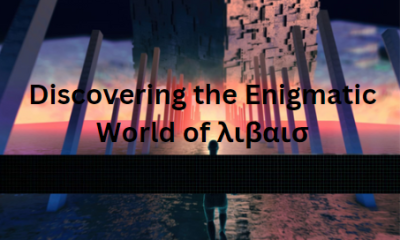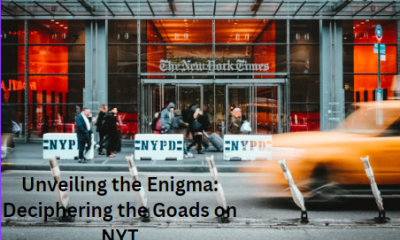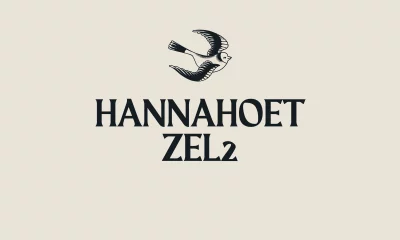yeder veyst meaning The phrase “Yeder veyst” is a Yiddish expression meaning “everyone knows” or “it’s common knowledge.” Like many idiomatic expressions in Yiddish, it reflects a certain communal wisdom, often invoking a blend of humor, irony, and shared experience. To understand “yeder veyst,” one must delve into the linguistic roots of Yiddish, explore the cultural background of its speakers, and examine how this expression fits into broader Yiddish usage, both historically and in the present day.yeder veyst meaning
Linguistic Breakdown
“Yeder” means “everyone” or “everybody” in Yiddish. It is derived from the German word “jeder,” which shares the same meaning. Yiddish, as a language, shares much of its vocabulary and structure with German, with significant influences from Hebrew, Slavic languages, and Romance languages.
“Veyst” comes from the Yiddish verb “visn,” meaning “to know.” This, too, parallels the German word “wissen” (to know). In this context, “veyst” means “knows.” Together, “yeder veyst” directly translates to “everyone knows.”
However, the significance of “yeder veyst” goes beyond this literal translation. Like many Yiddish expressions, it often conveys a deeper sense of collective understanding or shared assumptions. This phrase is used when referring to facts, beliefs, or common wisdom that is assumed to be universally recognized within a community.
Cultural and Historical Significance
Yiddish is a language rich in cultural nuance. Historically, it served as the lingua franca of Ashkenazi Jews in Central and Eastern Europe, a group that experienced significant persecution and displacement. Over centuries, Yiddish speakers developed a language filled with wit, humor, and deep philosophical underpinnings, yeder veyst meaning much of which reflects the resilience of Jewish communities through hardship.
In the case of “yeder veyst,” its usage often reflects this communal experience. Jewish communities have long relied on shared knowledge, not only as a practical matter but also as a way of preserving culture, values, and identity in the face of external threats. For example, the phrase could be used to refer to something as yeder veyst meaning simple as a well-known folk tale or as profound as a shared moral truth.
Example: “Yeder veyst, az der bestn naye iz fun di bobe” (“Everyone knows, the best advice comes from Grandma”). In this example, the phrase is used to reflect a piece of common cultural wisdom, in this case, the respect for elder generations’ guidance in Jewish families.
Everyday Usage of “Yeder Veyst”
In everyday conversation, “yeder veyst” can take on various tones and meanings depending on the context. It can be used straightforwardly to express that something is widely known, or it can be employed humorously or ironically to yeder veyst meaning point out that something is so obvious that it shouldn’t need to be said.
Humorous Use
Yiddish is well known for its humor, particularly its tendency to mix dry wit with poignant insight. “Yeder veyst” can be used as a setup for jokes or humorous observations about life. For instance, in discussing universally understood but often unspoken truths about human behavior, someone might say, “Yeder veyst, men ken nisht gefinen di shtrik mit klamkes ven men zey zenen a zukh” (“Everyone knows you yeder veyst meaning can’t find your keys when you’re looking for them”). This humorous use of “yeder veyst” reinforces the speaker’s point by invoking a commonly shared experience.
Irony and Subtle Critique
“Yeder veyst” can also be used ironically, implying that what “everyone knows” may not be true, or at least not as universally accepted as the phrase suggests. For example, one might say, “Yeder veyst, az ale mentshn zenen gute” (“Everyone knows that all people are good”), with an ironic tone that hints at the complexity of human nature.
In this way, “yeder veyst” becomes a tool not just for stating facts but also for questioning assumptions, all while engaging in a shared yeder veyst meaning dialogue that invites reflection and insight.
“Yedel Veist” in Literature and Stories
Yiddish is a language with a rich literary tradition, with famous writers such as Sholem Aleichem, Isaac Bashevis Singer, and I.L. Peretz capturing the essence of Jewish life through their stories. In their work, expressions such as “Yedel Weist” are woven into the dialogue, evoking the communal life of shtetls (small Jewish villages in Eastern Europe) and the common wisdom passed down through generations.
For example, in Yiddish literature, characters may use “Yedel Veist” to expound the moral of the story or emphasize a point about the nature of humans or life. In Sholem Aleichem’s work about the famous dairy farmer yeder veyst meaning Tevye, the protagonist often quotes proverbs and sayings to explain his worldview. “Yeder veyst” may not be word for word, but similar expressions are used to establish the universality of certain truths in Jewish life.
The Enduring Relevance of “Yeder Veyst”
Although Yiddish is no longer spoken as widely as it once was, the language and its idiom remain deeply embedded in Jewish cultural consciousness. “Yeder veyst” and similar expressions transcend linguistic boundaries and continue to be used today among English-speaking Jews.
In modern Jewish communities, especially in the United States, Yiddish phrases often appear in everyday conversation. “Yeder veyst” is sometimes used at the beginning of a sentence to imply a supposed sense of knowledge yeder veyst meaning within the group, such as when discussing familiar topics or well-known anecdotes about Jewish history and tradition.
For example, on Jewish holidays, you might hear the phrase “Yeder veyst, der Seder iz di langst-nayt” (“Everyone knows that the Seder is the longest night”). This refers to the traditional Passover meal, which often lasts late into the night due to lengthy rituals and readings.
In addition, Yiddish is experiencing a resurgence in certain academic and cultural circles, particularly in literature, theater, and film. Given the growing interest in preserving Jewish traditions, the phrase “yeder veyst” and its deeper yeder veyst meaning cultural meanings are likely to remain relevant for future generations.
conclusion
“Yeder veyst” is more than just a phrase meaning “everyone knows it.” This reflects the deep communal ties, shared knowledge, and cultural wisdom that have been central to Jewish life. This phrase captures the spirit of Yiddish, a language known for its wit, humor, and insight into human nature.
Used in everyday conversations, stories, humor, and irony, “yeder veyst” remains an important expression that connects people to their cultural heritage. When used to state an obvious fact, make a joke, or point out an unpleasant truth, “yeder veyst” is an example of how language can encompass not just words but the yeder veyst meaning values and experiences of an entire community.
In today’s world, where cultural preservation is more important than ever, expressions like “yeder veyst” remind us of the richness and depth of Yiddish and the people who spoke it. As Yiddish makes its way back into the yeder veyst meaning cultural space, “yeder veyst” will continue to hold a special place in the hearts of those who understand and appreciate its meaning.

 Blog7 months ago
Blog7 months ago
 Fashion8 months ago
Fashion8 months ago
 News7 months ago
News7 months ago
 Blog7 months ago
Blog7 months ago
 Entertainment8 months ago
Entertainment8 months ago
 News8 months ago
News8 months ago
 Tech7 months ago
Tech7 months ago
 Life Style8 months ago
Life Style8 months ago



